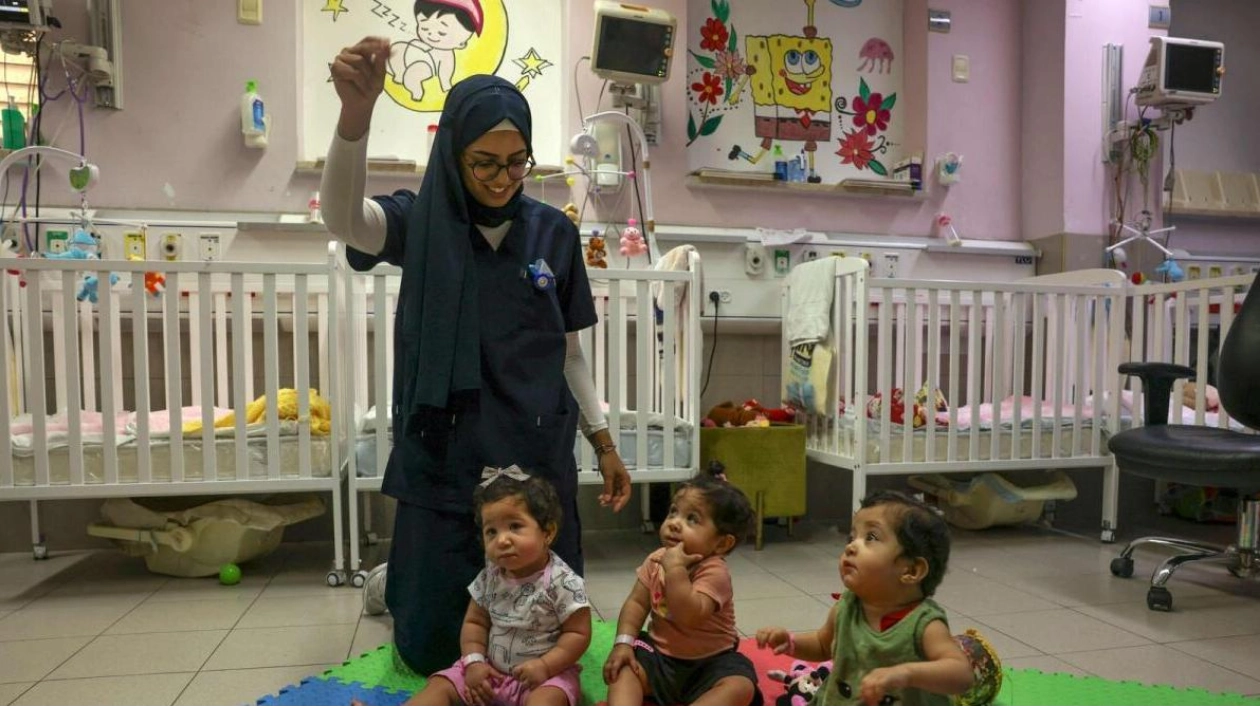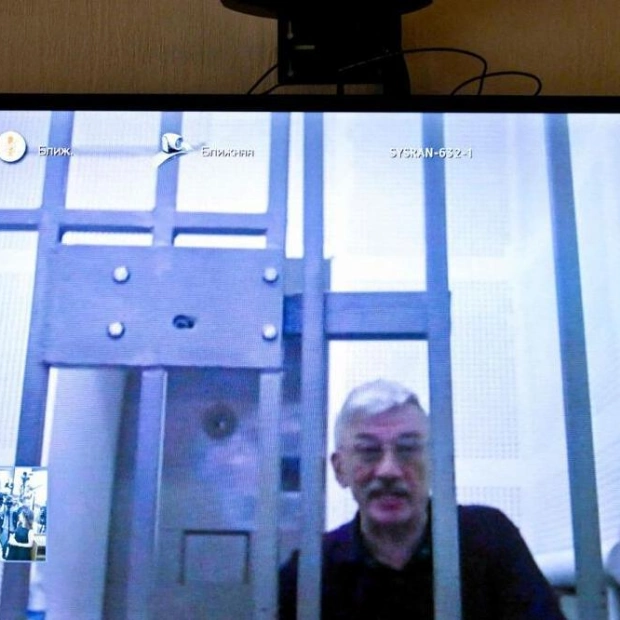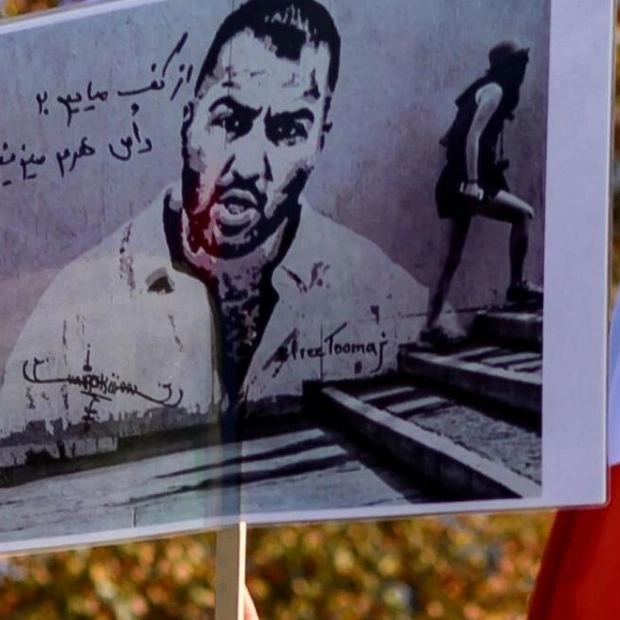The triplets, now one year old, were born in Jerusalem to Gaza-native Hanane Bayouk before the war. They have seen their mother only once, and she fears she will "die without them". The 26-year-old had to return alone to the Palestinian territory after giving birth to Najoua, Nour, and Najmeh on August 24, 2023, due to the expiration of her Israeli travel permit. Bayouk had received a permit to exit Gaza and give birth at Al Maqased Hospital in annexed east Jerusalem following seven years of painful IVF procedures. She managed to see her children in their incubators for just over an hour before having to return to Gaza as her permit had expired and the hospital asked her to leave.
Bayouk was originally scheduled to return in early October after her daughters had spent several weeks in incubators, which were scarce in Gaza hospitals even before the Israel-Hamas war began last October. However, just two days after applying for a new exit permit on October 5, Hamas commandos stormed the Erez terminal, the sole entry point from Gaza into Israel. The militants then launched an unprecedented attack that resulted in 1,198 deaths, mostly civilians, according to an AFP tally based on Israeli official figures. Israel's retaliatory military campaign has claimed 40,476 Palestinian lives in Gaza, according to the Hamas-run territory's health ministry, which does not differentiate between civilian and militant casualties. The UN rights office reports that most of the victims have been women or children.
Similarly, Heba Idriss found herself caught in the conflict and unable to return to Jerusalem to retrieve her premature daughter Saida, born at the Maqased two months earlier. The 27-year-old had hoped to bring her newborn back to her husband Saleh in Shujaiya, northern Gaza Strip. Instead, the couple has been displaced nine times due to Israeli air strikes or evacuation orders, and Saleh has only seen pictures of Saida. "I want to see my daughter, I suffer so much from being separated from her," she said tearfully. Hanane Bayouk has also been displaced and now resides in a displacement camp in the south, sharing a tent with seven of her in-laws.
"It drives me crazy. It took me so long to get pregnant, and now I'm crying all the time," she told AFP on one of the few days she could connect on Gaza's struggling phone network. "Sometimes, I think I'd like for my daughters to return to Gaza before I die because I have never kissed them, but then I get a hold of myself and tell myself it's better for them to be safe far from the war," she said. At the Maqased, the neonatal intensive care unit director Hatem Khammach notes that under normal circumstances, there would not have been room to keep Nour, Najmeh, and Najoua for so long. However, the number of births at the hospital has significantly decreased as Israel has ceased issuing travel permits to mothers from Gaza and reduced the number given to mothers from the occupied West Bank.
With more checkpoints closed more frequently, even those with permits find it difficult to access specialized care in Jerusalem. "Before the war, we had seven or eight Gaza babies in our department, which can accommodate 30 at a time," Khammach said. Since October, none have arrived, "and many sick people from the West Bank can't reach us". Despite this, the hospital's health workers remain active, including those who facilitate phone calls between Bayouk and her three daughters. "My husband can't do it. I do it and I cry every time we hang up. I'm afraid my daughters will grow up without knowing me," Bayouk said.






